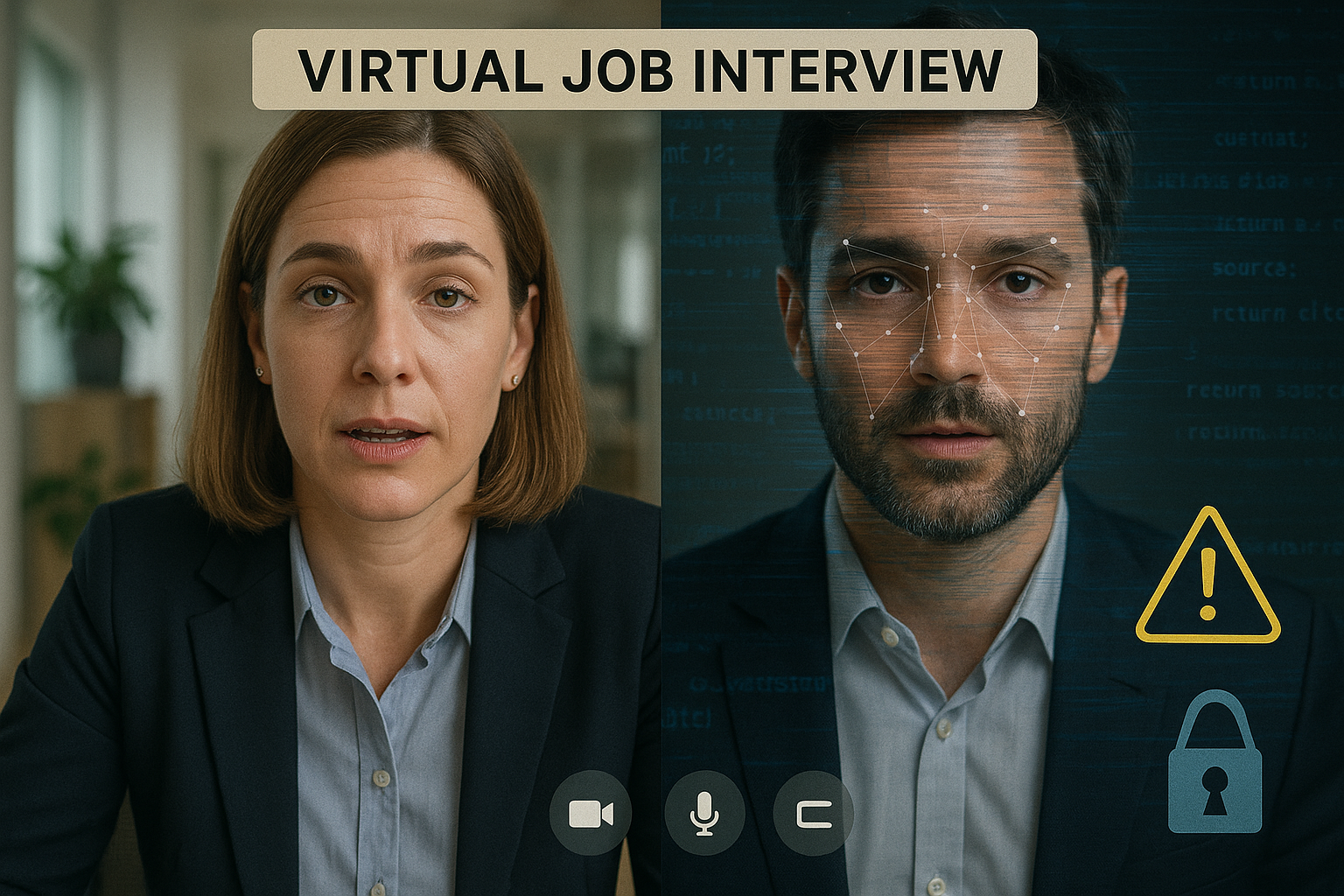The recruitment landscape is undergoing a significant transformation with the advent of artificial intelligence (AI). While AI tools have streamlined many hiring processes, they’ve also introduced new challenges, particularly concerning candidate authenticity.
Recent reports highlight a concerning trend: individuals are leveraging AI technologies, including deepfakes, to misrepresent themselves during remote job interviews. There has been a surge in complaints about candidates using stolen personal information and deepfake videos to secure remote tech positions. These roles often grant access to sensitive data, making the deception particularly alarming.
Moreover, some candidates are utilising AI-driven tools that provide real-time prompts during interviews, effectively coaching them on responses. While these tools aim to boost confidence, they blur ethical lines and can misrepresent a candidate’s true capabilities.
As recruiters, it’s imperative to adapt to these evolving challenges. Here are some strategies to ensure the integrity of the hiring process:
- Enhanced Verification Processes: Implement multi-step verification methods, including live video interactions and tasks that require spontaneous problem-solving, to assess genuine candidate skills.
- Promote Ethical AI Use: Clearly communicate to candidates the acceptable use of AI tools during the application and interview process, emphasising the importance of authenticity.
- Continuous Training: Regularly train recruitment teams to recognise signs of AI-assisted deception and stay updated on emerging technologies in this space.
As candidates looking for new opportunities, there are also challenges to be aware of:
- Avoid AI tools during interviews—focus on showcasing your actual skills.
- Secure your personal information to prevent identity theft or impersonation.
- Report suspicious activity if you suspect your profile is being misused.
Lastly, it’s also crucial for companies to stay vigilant against AI interview fraud:
- Require real-time video interviews with dynamic questions to assess candidate’s true skillset.
- Ask for multi-factor identity verification early in the process (e.g., government ID, LinkedIn confirmation).
- Use plagiarism and AI-detection tools for written assessments or coding challenges.
- Train hiring teams regularly on how to spot deepfakes and AI-assisted deception.
- Collaborate with trusted recruitment partners who have robust screening processes.
By proactively addressing these challenges, everyone in the recruitment process can maintain trust and ensure that the hiring process remains both fair and effective in the age of AI.

